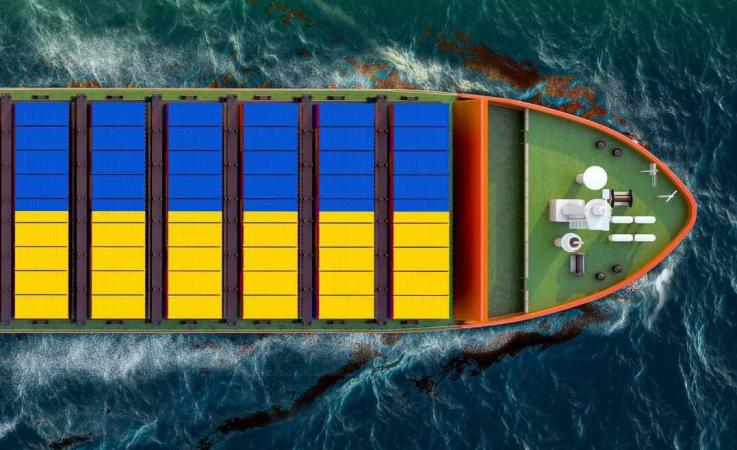Ukrainian naval forces open corridor for ships in the Black Sea

Temporary humanitarian corridors for ships in the Black Sea have been opened up by Ukrainian naval forces, according to an official statement by the country’s military forces, reported by AgriCensus.
Although the corridor had been declared open for ships to enter and leave Ukrainian Black Sea ports, the 10 August statement warned of continuing risks of military threat and danger of naval mines from Russian naval activity.
Vessels would only be allowed to use the corridors if their owners or captains officially confirmed their willingness to ship in the current conditions, or were prepared to accept the risk, the note added.
Ukraine had offered such routes for shipments out of the Black Sea to the International Maritime Organisation (IMO), and the organisation had recognised Ukraine’s right to continue free commercial navigation, as guaranteed by international maritime law, according to the statement.
Previously only used for ships carrying agricultural products, the Black Sea corridor would now be mainly used for vessels that had been stuck in Ukrainian ports following Russia’s invasion and subsequent conflict last February, the note said.
Despite the move, trade sources said the primary concern about who would provide insurance for such shipments remained, AgriCensus wrote.
“It’s a good step but if it doesn’t eliminate the risk, people will probably approach on a ‘wait and see’ basis. That is, they will wait for somebody else to go first,” a freight analyst was quoted as saying.
In July, Ukrainian officials said that they had made an insurance fund of UAH20bn (around US$544M) available to cover any potential damage for such shipments, the report said.
However, when the fund was announced, it was also said that the decision on whether or not to cover any damage would be analysed and taken by the Ukrainian government and, as such, it was not fully clear how it would work, AgriCensus wrote.
“Until Russia agrees to some kind of deal, the owners will not be sure of their safety,” a freight broker was quoted as saying.
Since Russia’s withdrawal from the Black Sea Grain Initiative (BSGI) on 17 July, ship owners were no longer prepared to risk entering the region without Russian guarantees, particularly since Russia had attacked ports in the region, the report said.
By directly targeting and damaging Ukraine grain assets at Black Sea ports and on the Danube River since withdrawing from the BSGI, Russia had weaponised food, Stephen Nicholson, global sector strategist, Grains & Oilseeds, at Rabobank, was quoted as saying in a World Grain report on 4 August.
“Russia has made a clear decision that it is going to use food as a weapon,” Nicholson told World Grain.
In a letter seen by Reuters, the European Union (EU) had warned developing countries and G20 members – comprising the world’s largest economies – that Russia was offering cheap grain “to create new dependencies.”
“As the world deals with disrupted supplies and higher prices, Russia is now approaching vulnerable countries with bilateral offers of grain shipments at discounted prices, pretending to solve the problem it created itself,” the letter said. “This is a cynical policy of deliberately using food as a weapon to create new dependencies by exacerbating economic vulnerabilities and global food insecurity.”
According to a report by The Guardian on 27 July, Russian president Vladimir Putin had promised free grain supplies to six African countries following the collapse of the BSGI.
Read also
Wheat in Southern Brazil Impacted by Dry Weather and Frosts
Oilseed Industry. Leaders and Strategies in the Times of a Great Change
Black Sea & Danube Region: Oilseed and Vegoil Markets Within Ongoing Transfor...
Serbia. The drought will cause extremely high losses for farmers this year
2023/24 Safrinha Corn in Brazil 91% Harvested
Write to us
Our manager will contact you soon



